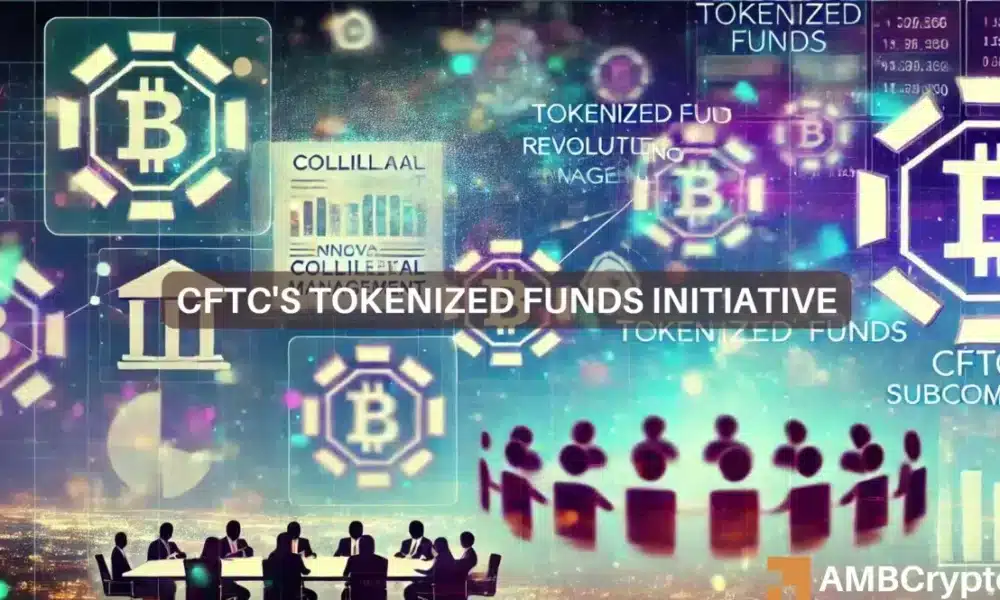In a notable step towards enhancing investment portfolio diversification and improving capital efficiency for fund managers, a panel within the Commodity Futures Trading Commission (CFTC) has moved forward with recommendations regarding the utilization of Distributed Ledger Technology (DLT) to manage non-cash collateral.
These guidelines aim to empower registered companies to utilize DLT for custody and transfer of tokenized assets, representing a significant advancement towards integrating blockchain solutions into traditional financial systems.
Leadership from BlackRock and Franklin Templeton
The recommendations have been escalated to the full committee for further deliberations, sparked by reports from Bloomberg in early October.
This emphasizes the drive to use tokenized fractions of money-market funds from major financial entities like BlackRock and Franklin Templeton as collateral in trading endeavors.
This initiative involves key members like Citadel, Bank of New York Mellon, and Bloomberg LP, showcasing the growing support for tokenization in conventional financial domains.
If approved by the full committee later this year, the proposed recommendations could significantly boost the uptake of tokenized collateral in financial markets, offering firms improved capital efficiency.
Implications and Future Developments
This development could particularly benefit BlackRock’s BUIDL tokenized fund and Franklin Templeton’s FOBXX, prominent players in the tokenized U.S. treasuries sector.
BUIDL leads the market with over $518 million in tokenized assets, while FOBXX holds a substantial share of $435 million, together accounting for almost half of the $2.3 billion tokenized U.S. treasuries market.
If the recommendations receive full approval, the adoption of tokenized collateral is expected to grow, as more enterprises seek operational efficiencies through tokenization.
Insights from McKinsey
McKinsey, in a recent report from June 20th, projected that the total tokenized market capitalization could approach $2 trillion by 2030, driven by increased adoption in various financial instruments like mutual funds, bonds, ETNs, loans, securitization, and alternative funds.
They also suggested a bullish scenario where this value could double to $4 trillion, although they expressed cautious optimism as we near the mid-2020s.
Interest from Brokers in Tokenized Funds
As anticipated, some firms like crypto prime brokers Hidden Road and FalconX have started utilizing BlackRock’s BUIDL token as collateral, indicating the rising acceptance of tokenized assets in the financial industry.
Aave recently introduced the GHO Stability Module (GSM) in August, designed to use BUIDL shares to support its stablecoin peg to the US dollar.
In a similar vein, stablecoin issuer Ethena Labs disclosed plans for UStb, a new stablecoin fully backed by BUIDL.

